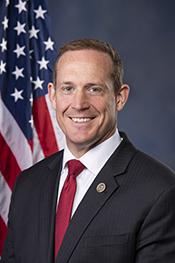0
Nuclear Fuel Security Act of 2023
3/12/2024, 1:24 PM
Summary of Bill S 452
The bill proposes several key measures to achieve this goal. Firstly, it calls for increased funding for the Department of Energy to improve the security of nuclear fuel storage facilities. This includes implementing advanced security measures such as surveillance systems and access controls to prevent unauthorized access to nuclear fuel.
Additionally, the bill aims to strengthen coordination between federal agencies, such as the Department of Homeland Security and the Nuclear Regulatory Commission, to ensure a comprehensive approach to nuclear fuel security. This includes sharing information and resources to better protect nuclear fuel facilities from potential threats. Furthermore, the bill emphasizes the importance of maintaining a strong domestic supply of nuclear fuel to reduce reliance on foreign sources. It calls for increased investment in domestic nuclear fuel production and research to enhance the security and resilience of the US nuclear fuel supply chain. Overall, the Nuclear Fuel Security Act of 2023 seeks to address the growing concerns surrounding the security of nuclear fuel in the United States. By implementing these measures, the bill aims to enhance the protection of nuclear fuel facilities and ensure a secure and reliable supply of nuclear fuel for the nation.
Congressional Summary of S 452
Nuclear Fuel Security Act of 2023
This bill establishes new programs and expands existing programs to increase domestic supplies of certain types of low-enriched uranium (LEU) for nuclear energy and establishes related requirements.
Specifically, the Department of Energy (DOE) must establish a program to increase the production of certain types of LEU, including high-assay low-enriched uranium (HALEU) used by advanced reactors, by U.S. nuclear energy companies.
DOE must also establish a demonstration program to make HALEU available from its inventories or stockpiles and allied countries to meet the needs and schedules of advanced nuclear reactor developers until such time that commercial enrichment and deconversion capability for the uranium exists in the United States at a scale sufficient to meet future needs.
In addition, DOE must expand the existing American Assured Fuel Supply Program to ensure the availability of uranium, including HALEU, from domestic sources or allies in the event of a supply disruption. Under the expansion, DOE must merge its Uranium Reserve Program with the American Assured Fuel Supply Program. Under the expanded program, DOE must utilize only uranium produced, converted, enriched, deconverted, and reduced in the United States or an allied country. DOE must also maintain a limited reserve of uranium.
The bill also expands DOE's Advanced Nuclear Technologies Federal Research, Development, and Demonstration Program established under the CHIPS and Science Act of 2022 to include financial assistance for the deployment of advanced nuclear reactors and associated supply chain infrastructure.
It also revises and reauthorizes through FY2027 DOE's nuclear traineeship subprogram.
Finally, the bill modifies the USEC Privatization Act to (1) limit the amount of LEU that may be imported into the United States through 2027, and (2) prohibit the importation of unirradiated LEU (i.e., uranium that has not been in a reactor) that is produced in Russia or by a Russian entity. It also prohibits importing LEU obtained in a manner designed to circumvent such prohibition. DOE may waive such prohibitions if it is in the national interest or there is no alternative viable source of LEU available to sustain the continued operation of a nuclear reactor or a U.S. nuclear energy company. Any waiver issued must terminate by January 1, 2028. The modifications to such act do not apply to imports for national security or nonproliferation purposes, or of non-uranium isotopes. The modifications no longer apply after December 31, 2040.





